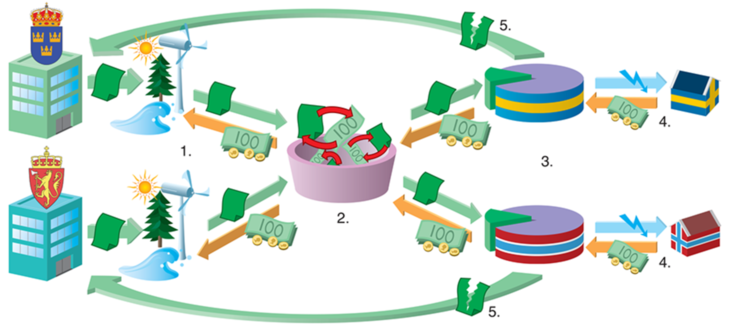Electricity certificates

Electricity certificates are an economic support scheme intended to increase the development of new renewable power in Norway and Sweden. Skagerak Kraft has traded its own electricity certificates, as well as electricity certificates from external portfolios, since Norway became part of the joint Norwegian/Swedish scheme.
The Swedish–Norwegian electricity certificate scheme started in 2012. The overall target for renewable electricity production in the joint electricity certificate market is 28.4 TWh in 2020. Norway has committed to financing 13.2 TWh, while Sweden will finance 15.2 TWh. In 2017, the Swedish government decided to extend the scheme in Sweden with a further 18.0 TWh. The overall target for new renewable energy production is now 46.4 TWh. The deadline for Norwegian players to have power plants approved for electricity certificates is 2020, while the scheme for redeeming certificates will be discontinued in 2045. The electricity certificate marked is a market-based support scheme. The way the system works is that renewable electricity producers are allocated one electricity certificate per megawatt hour (MWh) of electricity they produce for 15 years. The electricity certificate scheme is technology-neutral, meaning that all forms of renewable electricity production qualify for certificates, including hydroelectric power, wind power and bioenergy.
State organisation of the electricity certificate scheme
The Norwegian Water Resources and Energy Directorate (NVE) is responsible for administering and supervising the electricity certificate scheme, including approving the plants to be awarded certificates. Statnett SF is responsible for the electronic register (NECS) in which the certificates are issued and annulled.